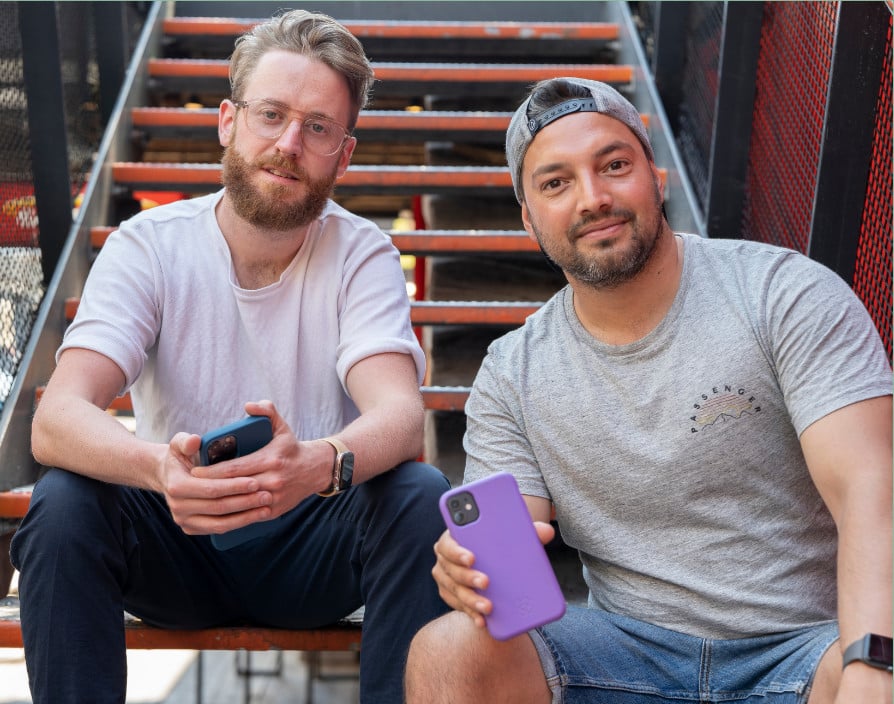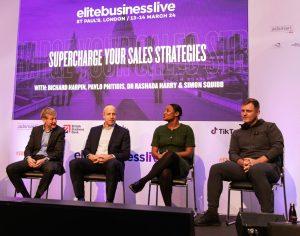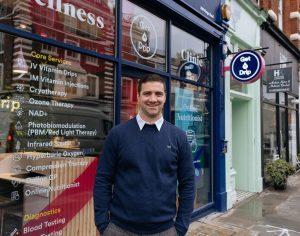The London-based brand is on a mission to rehome 100 million mobile phones
Our mission is to transform the way people buy used tech in the UK, Phil Kemis told me. We’re building the first on-demand platform that allows both consumer and businesses to sell, swap or shop used tech instantly while having a positive impact on the planet.
Reboxed is a platform aimed at transforming the way people sell, swap and shop for pre-owned tech. Consumer electronics is one of the world’s most polluting industries ‘ and reboxed is now on a mission to combat this growing problem. Millions of mobiles end up going to waste every year or get abandoned in drawers, landfills, or lying around people’s homes. CEO and co-founder of reboxed, Phil Kemish, began his career in music, and even was a finalist in the Xfactor at the age of 18, skipping the traditional studying route to dive into the world of entertainment and entrepreneurship. He later spent his time working as a promoter for gigs and concerns, before landing a commercial role at GRM Daily, a leading YouTube channel in UK’s urban music and culture scene. Phil later met his business partner, Matt and went on to create a record label, an awards show called Rated and built a social media marketing agency called Disrupt, which they successfully sold in 2017.
It was a period of learning and growth, we made a load of mistakes and we had some wins but I think it was the best education I could have had in business, and you certainly can’t skip this stage, Phil said, speaking about his career journey. The real hard graft learning the ropes and taking a few punches along the way.
Phil took all his skills and knowledge in the entertainment industry into the innovative tech sector ‘ and that was when the idea for reboxed hit him. Phil and Matt spent a year researching the process of buying and selling used devices and saw a large gap for refurbished mobile phones in the European market. We realised that whilst people love their tech, they don’t like the process of buying and selling used devices, Phil said. So, we wanted to reinvent it, creating a new way, providing transparency, convenience and peace of mind. Our mission is to transform the way people buy used tech in the UK. We’re building the first on-demand platform that allows both consumer and businesses to sell, swap or shop used tech instantly while having a positive impact on the planet. The tech we’ve built is market-leading and includes a slick e-commerce experience and TechCheck remote diagnostic app allows people to accurately price their tech with a few clicks. They can then sell, recycle or part-exchange that for a Reboxed device online, and can trade-in at their door via rider collection, local store or via the post. It’s a bit like Deliveroo and CeX having a baby – on demand e-commerce of tech, that’s Reboxed.
Launching in September 2020, the UK based start-up now aims to rehome 100 million mobile phones by 2030 in a bid to tackle electronic waste. Phil and Matt launched reboxed during the pandemic in an outstanding feat ‘ but were no stranger to the obstacles that stood in their way. They had to build the business remotely and created a ‘split system’ to manage the workload and challenges that arose while keeping the team positive and motivated during this challenging time. The business is a pandemic baby, so this has been the main struggle when trying to get things off the ground, Phil explained. We’ve had to build lots of the business remotely, the team, tech, the partnerships and supply chain – all things that would be easier if you could sit with the teams and work through it. The year we’ve all had made it tougher mentally as well, not being able to be in a room, celebrate the small wins and feel the energy and buzz of starting up with people IRL is something I’ve missed for sure. Personally, I had to keep to a daily routine, check-in with mentors and friends and I tried to constantly be visualising what the world would look like once this was all over and reboxed was launched. This kept me positive and motivated on the bigger picture.
He added: For the business, we created a split system to manage the functional business areas, we only had 3 people for the first 8 months and few great freelancers who mucked in to help get the first product live. We created a daily check-in to make sure we were accountable to each other and to keep us motivated. I and Matt split the key functions to make sure we could manage the workload and challenges ourselves and the team to keep moving the business forward in 6-week sprints to keep us focused.
This helped keep up the momentum, which is key to keeping on moving but we found there were elements of burnout from all the team. Partly due to the relentless pace of start-ups life but also dealing with the outside world pressures and situations didn’t help. We all made sure we took some time off when we needed it and since bringing on more people we’ve readjusted the systems to focus more on objectives and key results practice and quarterly targets. It’s important that for yourself and your team you create a practice of balance, it’s not all about working hard but working smart.
Phil says his positive outlook is his superpower when it comes to business, and believes in bringing his best foot forward as a leader ‘ even when things get rough. I turn up every day with a positive outlook and good energy, it’s like my superpower, Phil explained. Being the CEO it’s important that even when things or people are down you try and get your approach right and power forward. I’ve come to think of my role as being Chief Energy Officer – you have to lead from the front and find people who have a similar vibe and outlook to help move with you. As I’ve never worked for anyone in my life this is all I know. I build things because I love to be part of a team that’s driven to do something bigger than themselves. To have an impact, to make the world a little better, to create without limits and to love what we do. This is the opportunity that l living as an entrepreneur creates, and although it’s tough sometimes we get to live in a world where we get to play by our own rules, and there’s nothing better than that.
In a few words of advice to SMEs struggling during the pandemic, Phil said: The pandemic has killed a lot of businesses and exposed the weaknesses of many models, I think that’s the lesson in all of this. No one is safe. From major high street brands to SMEs, in my view, the pandemic has just accelerated what would have happened anyway. The high street was already fading, online and on-demand services were motoring and consumer behaviour was most definitely shifting to the digital revolution.
The next period will be unpredictable, and economic recovery will raise new competitive threats and opportunities at the same time. One thing is for certain we will not return to pre-COVID business practices, but more likely a decade of the next normal, a new era defined by fast-changing shifts in culture and societal values and behaviours. There will 100% be a rebound effect – with consumers wanting to recreate shared experiences with restaurants, leisure activity and bouts of revenge shopping when stores open and a chance for SMEs to relaunch.
I believe that the crises will spark a generation of innovation and Plato was right when he said: necessity is indeed the mother of invention. Disruption creates space for entrepreneurs, and the pandemic has accelerated the fourth industrial revolution. The digitalisation of industries, new technologies emerging as the opportunity to reinvent operating models, redesign systems, reduce the impact or potentially launch a new service or product offering to find new revenues are all on the table.
“
Share via:


















































